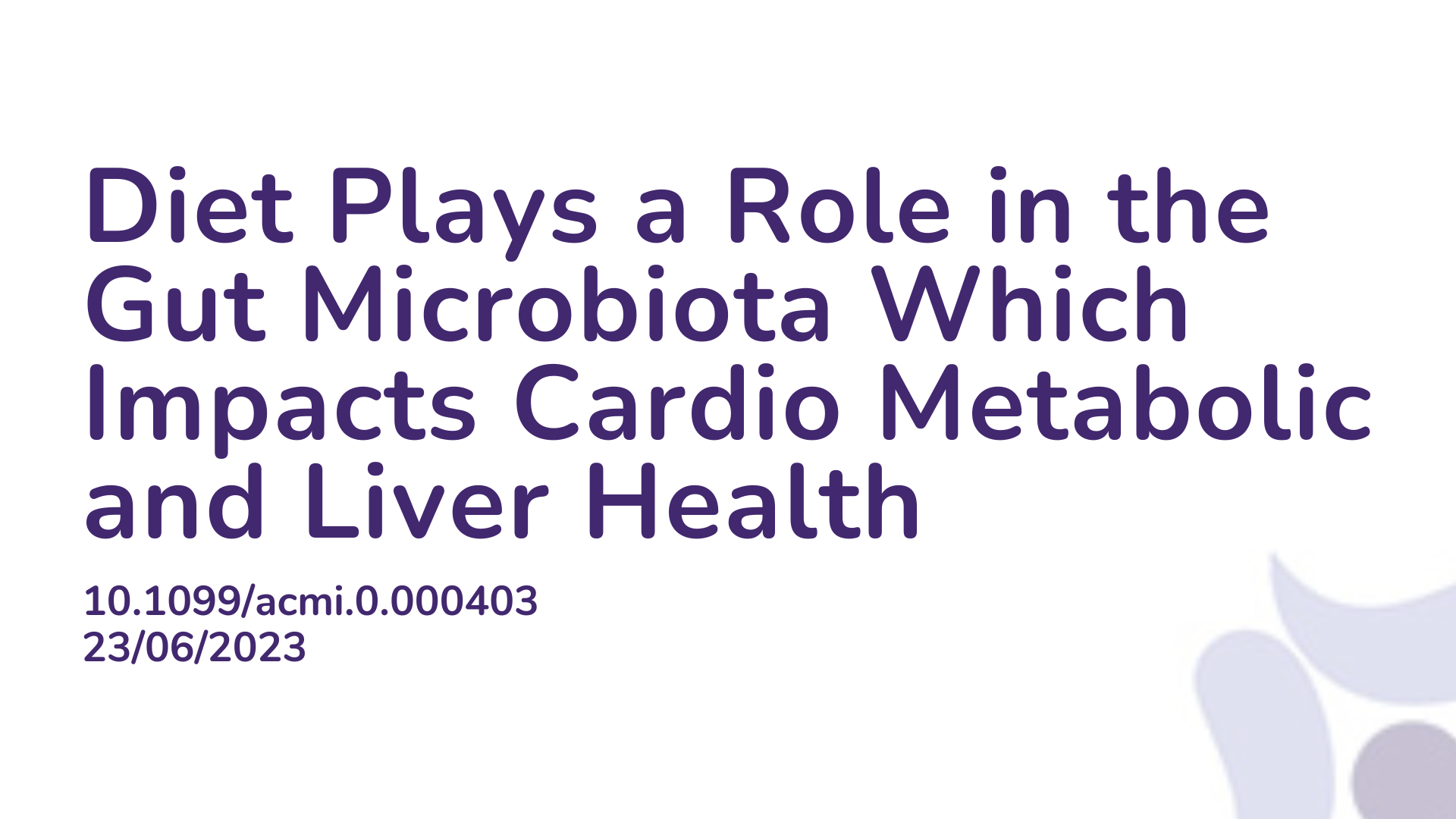Summary:
The gut microbiota contains an extensive variety of bacterial species, some which may be implicated in metabolic irregularities such as cardio-metabolic and liver conditions. The symbiotic relationship between gut microbes and the host is an important one, as it facilitates the processing of non-edible nutrients vital for digestion and physiological functions. To support a healthy gut microbiota, consuming a fiber rich diet while minimizing processed food intake has emerged as a beneficial approach. Short-chain fatty acids (SCFAs) in particular generate diverse metabolites within the gut that provide digestive and whole system benefits such as weight management, reduced inflammation, intestinal barrier integrity and enhanced glucose and lipid metabolism. This paper delves into the capacity of particular dietary patterns such as high fiber, fermented foods and high polyphenol intake to rectify gut dysbiosis and in turn influence cardio-metabolic and liver health.
Abstract:
Gut microbiota composition has caused perplexity in developing precision therapy to cure metabolic disorders. However, recent research has focused on using daily diet and natural bioactive compounds to correct gut microbiota dysbiosis and regulate host metabolism. Complex interactions between the gut microbiota and dietary compounds disrupt or integrate the gut barrier and lipid metabolism. In this review, we investigate the role of diet and bioactive natural compounds in gut microbiota dysbiosis and also the modulation of lipid metabolism by their metabolites. Recent studies have revealed that diet, natural compounds and phytochemicals impact significantly on lipid metabolism in animals and humans. These findings suggest that dietary components or natural bioactive compounds have a significant impact on microbial dysbiosis linked to metabolic diseases. The interaction between dietary components or natural bioactive compounds and gut microbiota metabolites can regulate lipid metabolism. Additionally, natural products can shape the gut microbiota and improve barrier integrity by interacting with gut metabolites and their precursors, even in unfavourable conditions, potentially contributing to the alignment of host physiology.
Article Publication Date: 23/06/2023
DOI: 10.1099/acmi.0.000403



